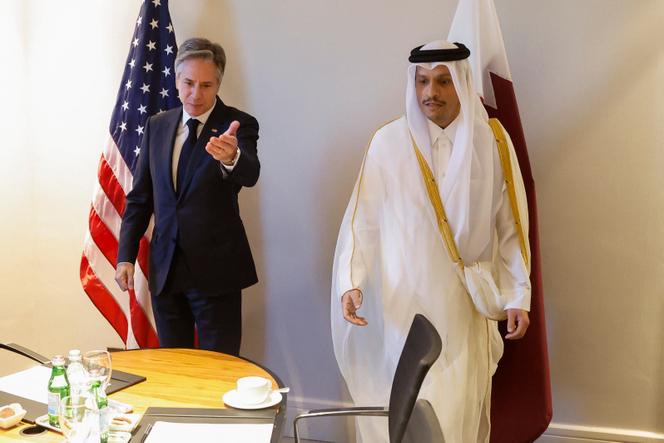


Qatar's speak-to-all-sides diplomacy has paid off again. The four-day truce scheduled to take effect in the Gaza Strip on Thursday, November 23, confirmed the small Gulf emirate's mediation skills. Qatar imposed itself as the linchpin of the truce, alongside Egypt: It was able to talk with Hamas, whose political leadership is based in Doha, the United States, which has a major military base in the sands of the small peninsula, and the head of Israel's intelligence service Mossad, David Barnea, who is a regular visitor to the country's palaces.
The agreement – and one of its main elements, the exchange of 50 hostages held in Gaza for 150 Palestinians imprisoned by Israel – should pave the way for a first lull in the war, which has claimed the lives of 1,200 Israelis and 14,000 Palestinians, and destroyed or damaged more than half the homes in the Gaza Strip. "As there is no telephone line between Gaza City on one side, and Washington and [Israeli Prime Minister] Benjamin Netanyahu's office in West Jerusalem on the other, Qatar's role in this initial breakthrough was central, as was Egypt's," said Adel Hamaizia, a Middle East specialist at the Harvard Kennedy School's Belfer Center.
"Negotiations were very difficult at first, almost impossible, so high was the level of anger," said a senior Qatari official, speaking on condition of anonymity. "We continued to talk with both sides and, to restore a little trust between them, we started with small steps," he added, referring to the release of two American hostages on October 21, two weeks after Hamas's attack.
"It took us seven hours to get them out," he continued. "We had one person on the phone with the Israelis, another with Hamas and a third with the International Committee of the Red Cross. The operation had to be suspended several times, not least because the Israelis were sending surveillance drones over Gaza when we had agreed that they would not use them."
According to a source close to the negotiators, the parties came very close to an agreement on October 25. But the Israelis' request for proof of life of the hostages was rejected by Hamas, scuppering the agreement, according to the Associated Press. Two days later, Israel launched its ground operation against Gaza, a development which led to a momentary interruption in the negotiations. Talks were also hampered by the emotion caused by the attacks on Gaza hospitals and by the loss of cell phone coverage, which prevented Hamas's political wing in Doha from consulting with its military wing in Gaza.
You have 70% of this article left to read. The rest is for subscribers only.
